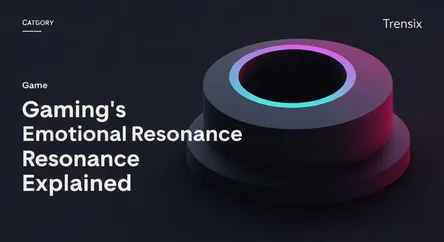Game
Gaming's Emotional Resonance Explained

Discover how emotional resonance creates deep connections between players and game worlds, making stories and characters truly unforgettable.
What is it?
Emotional resonance in gaming is the profound connection a player feels with a game's story, characters, or world. It's the quality that elevates a narrative from simple entertainment to a meaningful, impactful experience. This connection is forged through a combination of compelling storytelling, relatable character arcs, evocative sound design, and immersive world-building. When a game achieves strong emotional resonance, its key moments and themes linger in the player's mind long after the credits roll, making the virtual journey feel personally significant and memorable.
Why is it trending?
As gaming matures as an art form, both developers and audiences are seeking deeper, more sophisticated experiences. The industry has increasingly moved beyond purely skill-based challenges to explore complex human themes like grief, identity, and morality. Titles like 'The Last of Us' and 'Spiritfarer' have demonstrated the immense success of narratives built on emotional depth. This trend is driven by a player base that desires more mature, thought-provoking content that connects with their own life experiences, making emotional resonance a crucial element for modern game lore.
How does it affect people?
Emotional resonance fundamentally changes how people interact with a game, fostering deep empathy for its characters. A player's investment transforms, making in-game triumphs feel like personal victories and losses genuinely poignant. This heightened connection can provide a powerful, cathartic outlet, allowing players to explore complex feelings in a safe environment. It makes the game's world feel more alive and its lore more significant, encouraging players to reflect on its themes and creating a stronger, more dedicated community of fans who share in the experience.